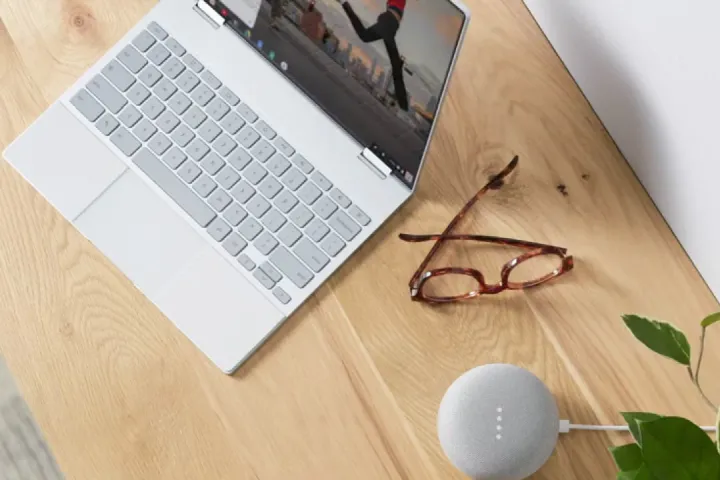 Daven Mathies / Digital Trends
Daven Mathies / Digital Trends
One of Google’s upcoming big projects could be a high-end laptop slated to be the next rival of the MacBook Pro.
An internal email obtained by Android Headlines detailed that Google has greenlit a project for a device codenamed “Snowy.” The email suggests the device is a laptop with premium specifications similar to the Dell XPS, Microsoft Surface Laptop, the Samsung Galaxy Chromebook, and the brand’s largest competitor, Apple’s MacBook Pro. With the project past the concept phase, it would likely be quickly expanded into a viable product under the Pixel line.
Google already has a long history of Pixel laptops. It introduced the first Chromebook Pixel in 2013, followed by a second generation in 2015. The brand released the more cost-effective Pixelbook in 2017 and Pixelbook Go in 2019, before taking an extended break from laptop development. At the time, these were two of the best Chromebooks ever made, though they certainly were priced higher than what typical Chromebook shoppers were used to.
Notably, the company hasn’t been completely out of the market as it has been providing ChromeOS to its hardware partners and developing its Gemini AI system as an on-device feature for third-party laptops.
Rumors about Google developing a new Pixel Laptop have surfaced at an interesting time — as there is also speculation that the brand is considering unifying its ChromeOS and Android operating systems. This is also expected to be a strategy to compete against Apple in the tablet market.
 Google
GoogleReports suggest that the hybrid Android and ChromeOS systems could be used for both Android tablets and Chromebook laptops to make both products entertainment and productivity powerhouses. With Google collaborating with varying partners in addition to releasing its own Pixel devices, it could be a solid strategy to use the merged system to eat at Apple’s iPad iOS market share.
So far, there is little known about the Pixel Laptop. If Google doesn’t use a unified ChromeOS and Android system for the coming laptop, it will likely run ChromeOS, similar to the original Pixelbooks. There are a number of components available that could be potential features on the Pixel Laptop, such as the Qualcomm Snapdragon X Elite, T3 noted.
We also keep in mind Google has its Tensor in-house SoC series, which could be a contender as hardware for the laptop. Many rumors already suggest Google already has plans to use upcoming Tensor chips in future tablets and wearables and could likely be configured for laptops. However, nothing can be confirmed about the Pixel Laptop at this time.
In terms of competition with Apple, analyst reports also suggest that the brand won’t release its next major overhaul of its MacBook Pro line until 2026, which could feature an OLED display and M6 chip based on the 2nm process. This could give Google some time to truly flesh out its product.

Fionna Agomuoh is a Computing Writer at Digital Trends. She covers a range of topics in the computing space, including…
More AI may be coming to YouTube in a big way

YouTube content creators could soon be able to brainstorm video topic, title, and thumbnail ideas with Gemini AI as part of the "brainstorm with Gemini" experiment Google is currently testing, the company announced via its Creator Insider channel.
The feature is first being released to a small number of selected content creators for critique, as a spokesperson from the company told TechCrunch, before the company decides whether to roll it out to all users. "We're collecting feedback at this stage to make sure we're developing these features thoughtfully and will improve the feature based on feedback," the video's host said.
Read more
Google strikes back with its own lightweight AI model

Google announced Thursday that it is releasing Gemini 1.5 Flash, it's snack-sized large language model and ChatGPT-4o mini competitor, to all users regardless of their subscription level.
The company promises "across-the-board improvements" in terms of response quality and latency, as well as "especially noticeable improvements in reasoning and image understanding."
Read more
Tandem OLED laptops are here, but they’re not what you think

Tandem OLED made quite a splash on the new M4 iPad Pro when it was announced. After all, it seemed to solve one of the major issues with OLED screens. Having used the display myself, I can say it's certainly impressive.
That's why I was excited to see that Windows laptops were quickly adopting the technology as well, with the first one announced being the new XPS 13 Copilot+ laptop.
Read more



















 English (US) ·
English (US) ·